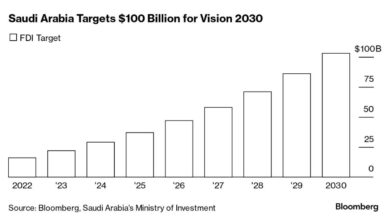US luxury properties still a hot investment for the wealthy

While home buying for most of the US has decreased in the month of March, there still seems to be an interest among wealthier Americans for luxury home purchases.
Knight Frank Global Head of Research Liam Bailey joins Wealth! to break down why luxury properties are still a popular investment among the wealthy.
Bailey elaborates on what has been a surprising trend in luxury real estate: “There’s a continued interest in real estate in terms of the portfolios. The challenge of course is interest rates have done what they’ve done, and therefore there is pressure in the markets. But there is still demand for accommodation. I think the biggest surprise probably is the fact that despite the fact that rates have risen, that luxury markets, but also even mainstream markets have seen prices for residential property rise over the past six to nine months. A lot of that is down to the fact that there’s very limited entry right now. The lack of [starts] means that demand has been pushing prices higher. “
For more expert insight and the latest market action, click here to watch this full episode of Wealth!
This post was written by Nicholas Jacobino
Video Transcript
– After you bought all your luxury wares, you need a nice big luxury home to put it all in with a California closet, perhaps. High interest rates are a hurdle. But one wealthy, one, the wealthy more easily jump than the rest of us, and many plan to. 22% of wealthy individuals want to invest in residential property this year, and 19% in commercial property, according to Knight Frank’s wealth report.
Joining us now for more on this, we’ve got Liam Bailey, Knight Frank’s global head of research, and editor of the wealth report that just dropped. So take us into some of the findings there. What was the, the stat that really just sent you slack jawed after finding this out in this report?
LIAM BAILEY: OK. So I think the biggest takeaway from this year’s report is the fact that wealth creation is back. So a year ago, we were reporting that there’d be a $10.1 trillion wipe off in terms of wealth portfolios. Over the past 12 months, because of what’s happened to equity markets, crypto, et cetera, et cetera, wealth creation is bad, the world economy has delivered, and therefore there are more wealthy individuals at a global level. You’ve just mentioned the stats that there is a continued interest in real estate in terms of their portfolios.
The challenge, of course, is interest rates have done, what they’ve done, and therefore there is, there is pressure in the markets, but there is still demand for accommodation. I think the biggest surprise probably is the fact that despite the fact that rates have risen, that luxury markets but also even mainstream markets have seen prices for residential property rise over the past six to nine months. A lot of that is down to the fact that there’s very limited inventory right now. So actually the lack of stock means that actually demand has been pushing prices higher.
– It’s particularly interesting, and the amount of anecdotal evidence around people applying for passports because the luxury and the wealthy are purchasing more properties that are international. What are you seeing on that front?
LIAM BAILEY: It’s become, I mean, the whole world of luxury real estate has become much more globalized. And it’s interesting, you go back five years, you were seeing US buyers in say London, for example. The last two, three years suddenly you’re seeing US buyers beginning to be big in Lisbon, in Portugal, Spain, Italy. There’s a whole host of markets, the luxury end of the market in the European sectors where US buyers are now beginning to impact on demand and also in terms of pricing.
– That’s one way to get into a four-day work week. Just getting that siesta baked in, cutting out some of those hours here. Liam, while we have as well here, you look across some of these CRE, some of the commercial real estate, some extreme moves that we’re tracking there right now, especially with the diminishing amount of office hours that are spent and the revaluation of a lot of that property too.
LIAM BAILEY: Yeah, you can’t, you’ve got to take a step back. There is no doubt there is a significant issue facing office sectors around the globe. I would say probably the US is a little more behind in terms of the return to the office. I think the UK, Europe is a bit more ahead of the curve. The direction of travel I think is back over time. I don’t think we’ll get back to five days a week, but we’re getting back to more normalized practices.
But the biggest shift we’re seeing is the fact that the office market has split into two. There is a huge demand for best in class offices. So if you run a professional services firm, 10% of your cost is your office space. Most of your cost is your people. You’re in the people business, you want to attract talent. And the best way to do that actually is a fantastic headquarters building somewhere where actually you’ve got training facilities, entertaining facilities, and so on. And the reality is, those buildings are not in decent supply.
So actually there’s a lack of accommodation available. If you’re looking to move in London right now, just to give you an example, we’ve got 80 mandates right now in London, over 50,000ft. You’re talking about a two, three, four year wait to actually move into your new premises. You can’t get the quality of stock right now. So it’s, the markets, I think, separate into two, best in class is doing really well, but the weaker sector is struggling.
– A lot more insights to dive into. That’s all we have time for right now. Liam Bailey, Knight Frank Global Head of Research. Thanks so much for taking the time here.
LIAM BAILEY: Thank you.





